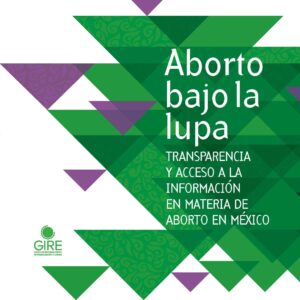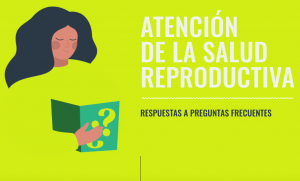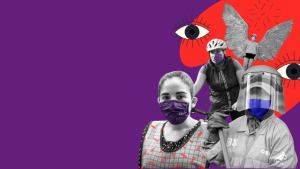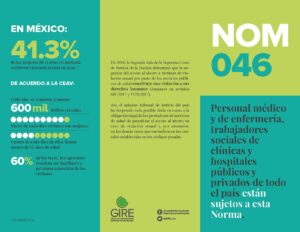
(2021) This report—intended primarily for journalists and activists interested in investigating the reality of abortion in Mexico through transparency, access to information, and open data—offers an overview of GIRE’s experience in obtaining public information.

(2021) The organizations of the Gender and COVID-19 Observatory in Mexico present an overview of what has happened to women’s rights across three key areas: violence and access to justice, health, and well-being.
They also offer recommendations to promote medium- and long-term structural reforms.

(2020) This microsite brings together key information about medical care during pregnancy, childbirth, and the postpartum period.
It aims to answer some of the most frequently asked questions that women and people with the capacity to get pregnant may have when making decisions about their reproductive lives.

(2020) Microsite of the Gender and COVID-19 Observatory in Mexico, a social accountability initiative to ensure that State actions in response to the pandemic comply with human rights obligations, from a gender and intersectional perspective.

(2020) Microsite offering answers to frequently asked questions about reproductive health for women and people with the capacity to get pregnant in the state of Yucatán.
It also provides information on where to seek support in cases of human rights violations.

(2020) Microsite offering answers to frequently asked questions about reproductive health for women and people with the capacity to get pregnant in the state of Yucatán.
It also provides information on where to seek support in cases of violations of their human rights.

(2020) Microsite offering answers to frequently asked questions about reproductive health for women and people with the capacity to get pregnant in the state of Chiapas.
It also provides information on where to seek support in cases of human rights violations.

(2019) Microsite about Nahá, a community located in the heart of the jungle in Chiapas, Mexico, where residents lack access to comprehensive medical care.
In response, they organized collectively and filed legal petitions to ensure that pregnant women receive the care they need.

(2019) Brochure on NOM 046: Family, Sexual, and Gender-Based Violence – Guidelines for Prevention and Care.
It provides information on the rights of survivors of sexual violence, as well as the obligations of personnel in public and private clinics and hospitals subject to this standard.